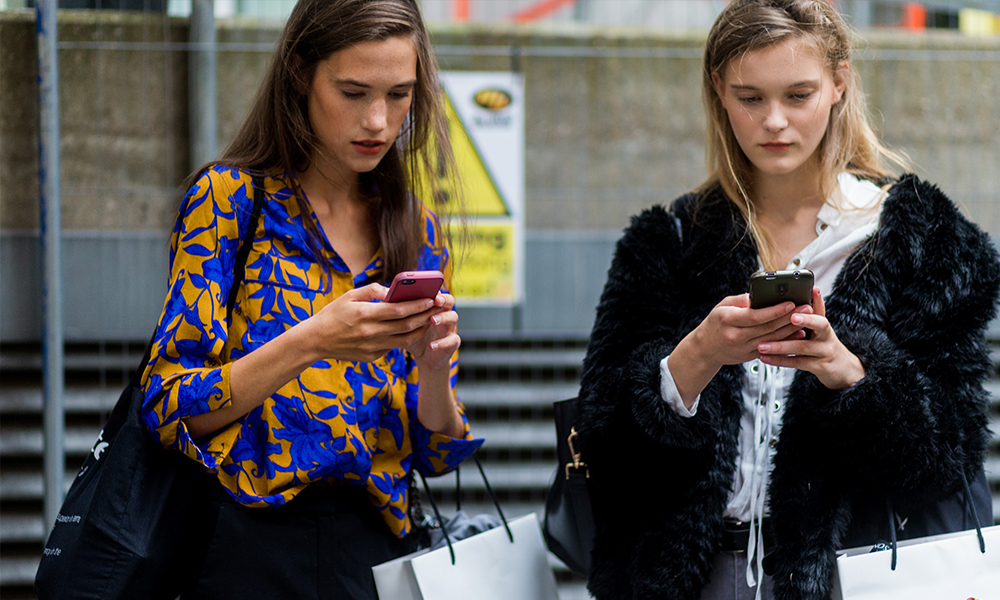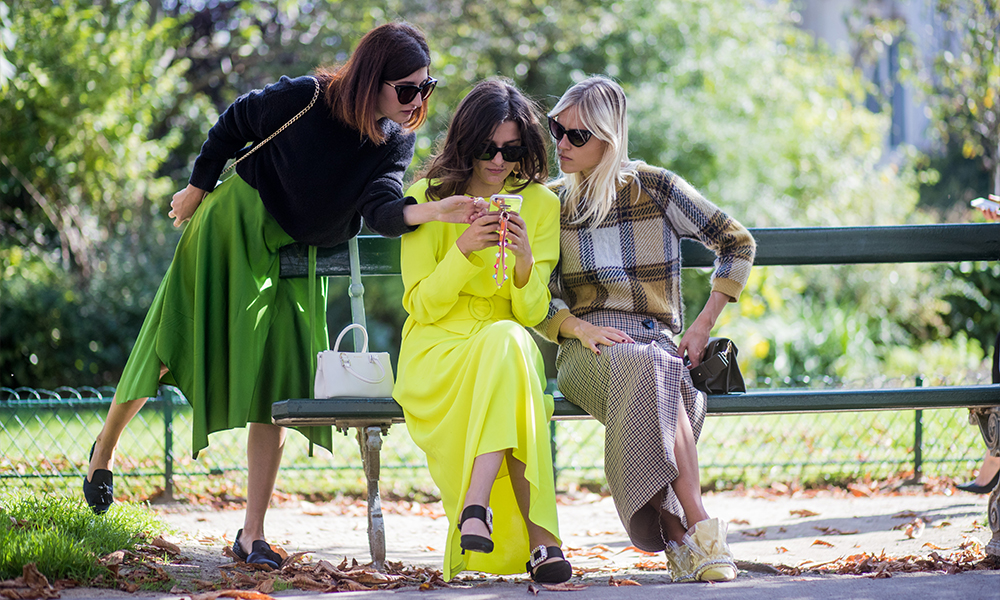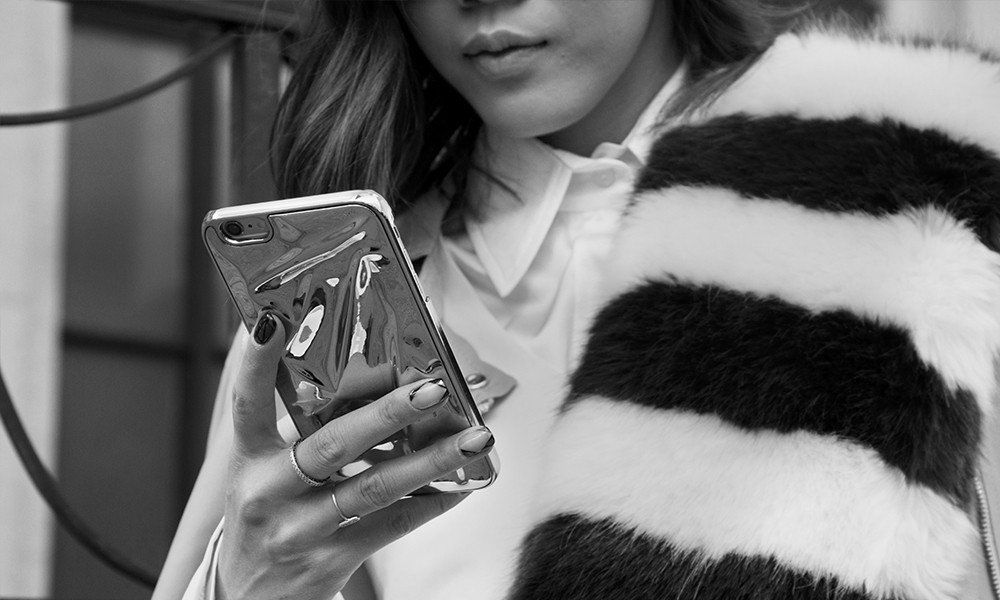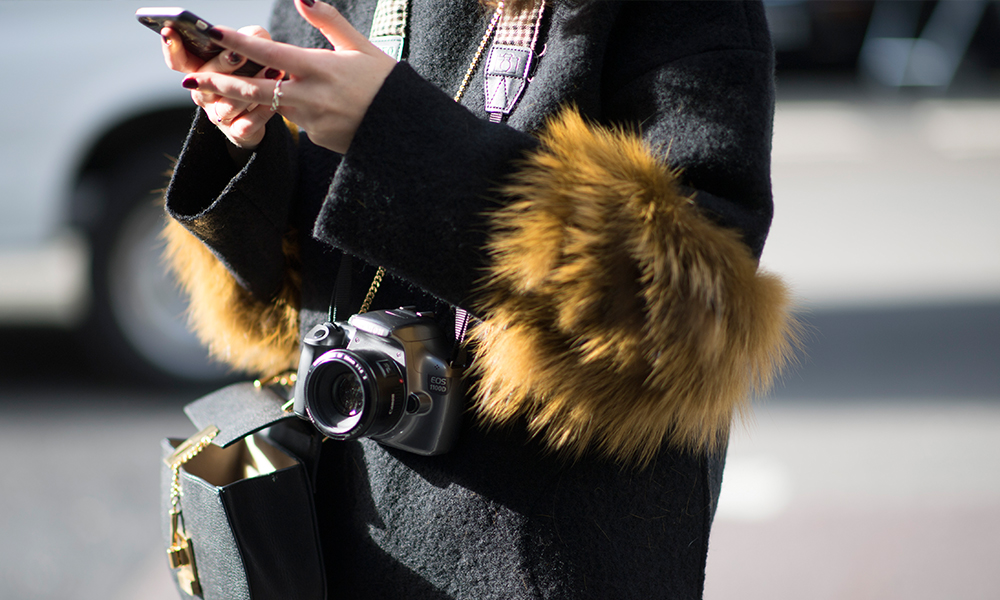Smartphones promise to make our lives easier, faster and more connected, but are they making us happier? Bronwyn Williams ditches hers to find out.
Every morning I wake to the sound of birdsong. Starlings and sparrows chirp quietly, stirring my consciousness, their excitement slowly building until the increasing volume snaps my eyes open. A crack of winter light peeps through the curtain and tracks along the duvet. Glancing at my phone, I switch the bird alarm off and then, despite my good intentions to go for a brisk walk while thinking mindfully to set myself up for a productive day ahead, a tap of my thumb sucks me into a vortex of Instagram scrolling. I emerge half an hour later, and having run out of time for my walk (again), I get up, phone in hand, and begin my day.
I open Spotify and it suggests music to get dressed to. I check my calendar while brushing my teeth, insert an emoji into a group chat and book in my evening spin class on the Les Mills app. On the way to work, I hit play on a podcast and update my health app, all while sporadically googling things that pop into my head. During the day I answer text messages on the toilet, Facebook Messenger messages while waiting for my coffee and WhatsApp messages in the lift. I use a banking app, a selfie-airbrushing app, a boomerang app and a healthy-eating app, Google Maps, Uber and, while in the Uber, an app that tells me my perfect foundation match. Between all that, I Instagram, Instagram, Instagramand email, email, email, until bedtime when I need Headspace— a meditation app — to soothe myself to sleep.
One evening, feeling panicked and empty after a particularly vigorous social media session, I began to count. I’d used 15 apps that day. And the day before that. The following week I installed another app — a usage tracker —and baulked when it announced that I looked at my phone an average of 115 times a day.

It began to dawn on me that the more I used my smartphone, the more dispirited I was becoming. The thing that was helping me multitask, do more and be more, was actually making me more and more unhappy. My smartphone had become an invisible crutch, a nervous twitch, a distraction from boredom.
Every spare minute of every single day, my head was buried in a small screen in the palm of my hand. I didn’t know how to be bored anymore; in fact I didn’t even know what boredom was. What was it like to be bored, to be in the present moment, watching the minutes tick by and observing a crack snake up the wall of the doctor’s office rather than reading about the blackhead extraction routine of an American beauty blogger?
I rummaged through my memory, struggling to remember what life was like before a smartphone. I began to wonder, what ifI lived without it?
I immediately began to panic. What about my emails? How would I get around without Google Maps? No Uber?
I immediately began to panic. What about my emails? How would I get around without Google Maps? No Uber? And what if someone needed to get in touch with me via Messenger? What would I do with my spare time? And, most importantly, how would I keep up with life? Despite the endless questions, I began to get the familiar feeling of having reached maximum capacity. It was time for a detox of the digital kind.
Switching to a dumbphone
I’m not the only one going through a tech crisis. As our lives become increasingly complicated, more and more people are choosing to slow down, eradicate unnecessary technology and switch off. Just like the slow-food movement, the slow-tech movement promotes the conscious consumption of technology and information rather than subscribing to the ‘always on’ notion that modern developments allow. And there’s a market for it too, with Nokia’s iconic text and call-only 3310 brick phone — these days called a ‘dumbphone’ — selling for top dollar as a collector’s item on eBay and a re-release expected here towards the end of the year.
While Nokia is taking the nostalgia route, others are developing new technology that aids a socially acceptable switch off. Light Phone, a Kickstarter-funded project, is a no-web, no-text phone that only makes and takes calls. The size of a credit card and marketed as ‘your phone away from phone’, it works asa seamless extension of your smartphone, allowing you to keep your same phone number.
“When we consume so fast, there’s no way for us to appreciate anything… our lives [lack] meaning and purpose,” says co-founder Joe Hollier. “Going light means leaving behind your smartphone and all of its noise in exchange for serene simplicity.”
Serene. Simplicity. Those were two words I certainly didn’t associate with my current life. Figuring most dietary detoxes last about a week, I decided to go for the same length of time without my smartphone.

That Sunday, I headed to my local tech store and located, after much searching, their single remaining dumbphone, an Alcatel selling for just $19. “Is it for your emergency disaster kit?” the young teller asked. Emergency? Disaster? Sort of.
During one of our regular FaceTime sessions, I told my friend what I was planning to do. A highly strung corporate exec, she’s also a heavy tech user. “Eugh,” she shuddered, “I could never do that.”
“But wouldn’t it be nice to have more time to think?” I asked. There was a long pause. “I’m too scared to be alone with my own thoughts,” she answered. I was shocked by her response, but not all that surprised. In a world where most of our online experience is dominated by looking into other’s heavily curated lives, deep internal thoughts — when we get the time to have them — often result in us stewing over our own shortcomings. My mother, who despite being tech-literate still uses the original Nokia 3310, was thrilled I’d finally seen the light. “When you go without it, you’ll realise you don’t actually need any of that extra stuff.”
Later that night, I switched SIM cards and after realising my iPhone had sucked my contacts into the Cloud, set about manually inputting the details of people I called regularly into the new phone. Sending a trial text to my husband, it all came rushing back: the tedious mashing of the same key in order to get a single letter out, the aching thumb after a day of heavy usage and the tick box to ‘add recipient’ that so often resulted in an accidental ‘send to all’. Gone were my apps, my social media and my array of bird species to wake up to. I had a calculator, an FM radio and a choice of 12 alarm sounds ranging from laughably twee to irritating.

The smartphone detox
Determined to make the most of my detox, the next morning I rose early, woken by a tinny synthesiser that jarred me enough to forgo the snooze option. I walked along the waterfront and without anything plugged into my ears, watched the sun rise. I felt like I was on holiday. Inhaling lungfuls of morning air, I marvelled as the sun burst onto the skyline and shifted across the water. I arrived home feeling awake, strangely enriched, and… calm. After few initial glances at my phone, I realised there was no point bothering; there was nothing to see: no pop up alerts or ‘unread’ icons hovering over an app. On the way to work, I simply watched the traffic. What was on my mind? Not much at all. My time in the coffee line was spent chewing over a story idea. Without the distraction at work, I got more done than ever.
The first time I felt regret was at lunchtime, when my colleagues began chatting about a celebrity Instagram that had been posted over the weekend.
The first time I felt regret was at lunchtime, when my colleagues began chatting about a celebrity Instagram that had been posted over the weekend. Ordinarily I would have seen it and the reposts, read the backlash and been right in there OMG-ing with them. I didn’t even know who they were talking about. Suddenly, I felt isolated. That afternoon I left my phone on my desk during a trip to the bathroom and realised, with blinding amazement, that if someone wanted to get hold of me, I could always call them back. And that text messages don’t have to be answered within a certain timeframe.
As the week went on, my phone began to spend more and more time on my desk when I went to get a glass of water, sat in meetings and walked around the office. By Thursday, I was brave enough to leave the phone at home when I went out for dinner. With emails now relegated to office hours only, a line emerged between work and home that hadn’t existed before. My spare time became more precious.

The slow movement
With a dumbphone, the pace of life was slower. I spent a lot of time on call waiting while booking gym classes and cabs (which I ultimately ditched in favour of getting my husband to order Ubers for me, after discovering the exorbitant price of a regular taxi). Having no smartphone forced me to think for myself. Appointments were written into a diary and I began relying on my memory, which worked just fine.
Though I’ve lived in Auckland for five years, I’d always used Google Maps to get around, blindly following as an American woman barked directions. With my map app gone, I finally began to get to know my city.
I enjoyed the fact that I was no longer a piece of traffic data. When questions popped into my head, I took pleasure in mulling them over, rather than going direct to Google. I also began to draw on the knowledge of those around me, which resulted in a number of phone chats with people I don’t speak to as often as I should.
I began to realise that technology, which promises to make life easier and connect us, does just that, but little of it is meaningful. Rather than living in the moment, we’re inhabiting a place called nowhere, almost all of the time. Without the smartphone I was present; I had breathing space. A task became just a task, not the multitasks I was accustomed to. There’s a presumption that equates busyness with productivity, and although without my smartphone I may have ticked off fewer tasks, those I did do were done more effectively, and with purpose.
The week was soon up. That Sunday night I reached for my smartphone —and then stopped. I wasn’t ready to have it all flood back in. Sure, some of the apps make life easier and my social media feed would allow me to keep up with water-cooler chat, but the benefits of a smartphone pale in comparison to those of living without one. I may still return to tech, but for now I’m sticking with my dumbphone while my iPhone rolls around, switched off, in the bottom of my bag, just for ordering Ubers.











